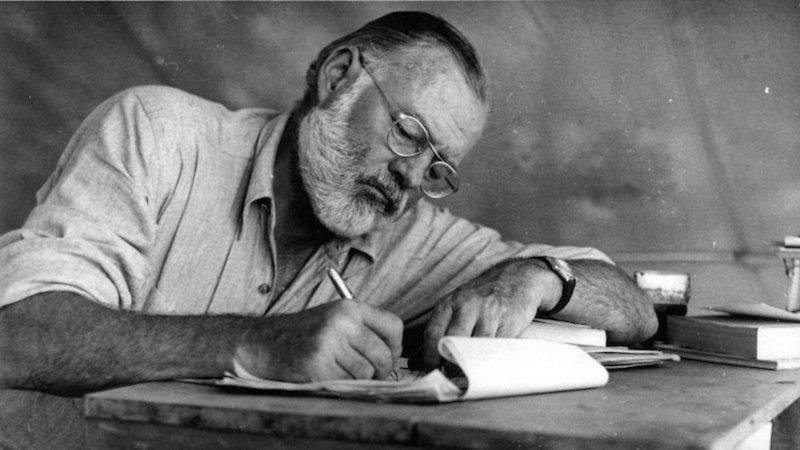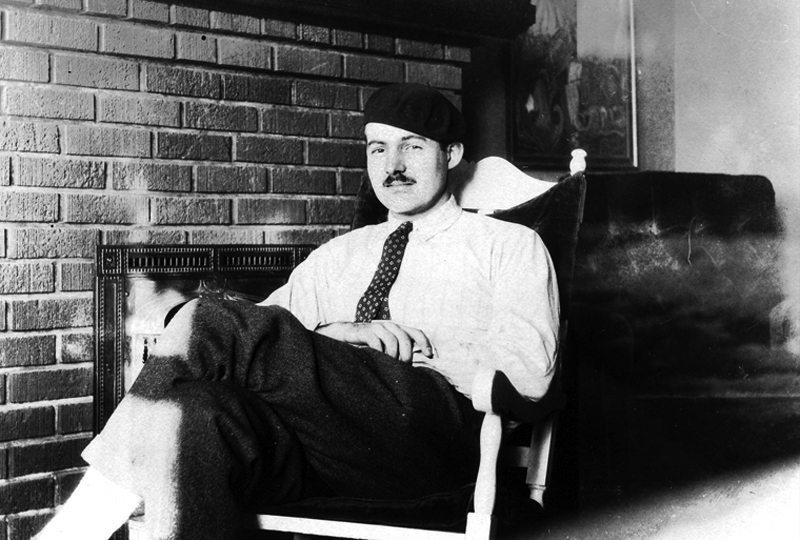Ernest Hemingway
Episode #3 of the course “Significant American writers of the 20th century”
Ernest Hemingway’s life was as legendary as his tales. Growing up in Oak Park, Illinois, he knew he wanted to be a writer, so he wrote. Hemingway published short stories, magazine articles, and nonfiction books, as well as seven novels throughout his life. He disliked being called “Ernest,” and people often called him “Hem,” although his first wife called him “Tatie.” Later, fans began addressing him as Papa.
Born in 1899, Hemingway reported to fight during World War I. In 1918, while serving as an ambulance driver in Italy, Hemingway was wounded and famously fell in love with a nurse during his hospital recovery. He would write about these events in his two works, A Very Short Story and A Farewell to Arms, which were published in 1924 and 1929. The novels earned him great acclaim at a young age, and he enjoyed fan loyalty during his later work.
As part of the famous Parisian circle of expatriates that included Gertrude Stein, F. Scott Fitzgerald, and Ezra Pound, Hemingway enjoyed Europe, including Spanish bull fights, skiing the Alps, and yachting around the Mediterranean—all of which is recounted in his fiction and nonfiction. In the 1930s, Hemingway was a war reporter in the Spanish Civil War. During the D-Day landing at Normandy, Hemingway was present, though he was considered a US “national treasure” and was not allowed to disembark. A great explorer, Ernest Hemingway eventually enjoyed big-game hunting in Africa, visited China, and fished some of the largest catches in the Caribbean.
Hemingway’s later novels include For Whom the Bell Tolls and The Old Man and The Sea, both of which are considered masterpieces that capture the ideas of rugged individualism, heroism, and sacrifice that he frequently explored. Hemingway’s career waned throughout the 1950s as his health deteriorated and personal struggles often interfered with his writing. In 1961, depression, health problems, and alcoholism contributed to his suicide, which left numerous works unfinished. Several are available as posthumous publications.
Quotes
“The best way to find out if you can trust somebody is to trust them.”
“The world breaks everyone, and afterward, some are strong at the broken places.”
“I like to listen. I have learned a great deal from listening carefully. Most people never listen.”
“Happiness in intelligent people is the rarest thing I know.”
“I drink to make other people more interesting.”
“As a writer, you should not judge, you should understand.”
Recommended books
Share with friends


